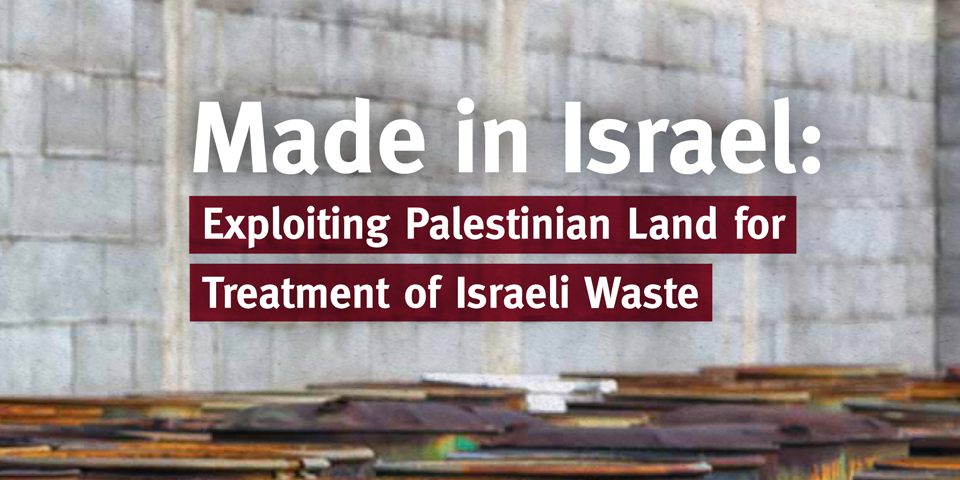Lax environmental standards govern Israeli industrial plants in the West Bank.

Like other countries, Israel has a system in place for treating the waste generated in its territory. However, as this report reveals, a significant portion of this system is located outside Israel’s sovereign borders, in the West Bank. Abusing its status as an occupying power, Israel has set out less stringent regulations in industrial zones in settlements and even offers financial incentives such as tax breaks and government subsidies. This policy has made it more profitable to build and operate waste treatment facilities in the West Bank than inside Israel. B’Tselem research has found that there are at least fifteen Israeli waste treatment facilities in the West Bank. Most of the waste they process is produced in Israel. Six of the facilities handle hazardous waste which requires special processes and regulatory supervision due to the dangers it poses. This report focuses on five waste treatment facilities operating in the West Bank: four plants which process hazardous waste and dangerous substances produced in Israel – including infectious medical waste, used oils and solvents, metals, batteries and electronic industry byproducts – and one which processes sewage sludge. The findings presented in the report are based on the information available on the types of waste these facilities receive and the potential risks the plants’ operations pose.





